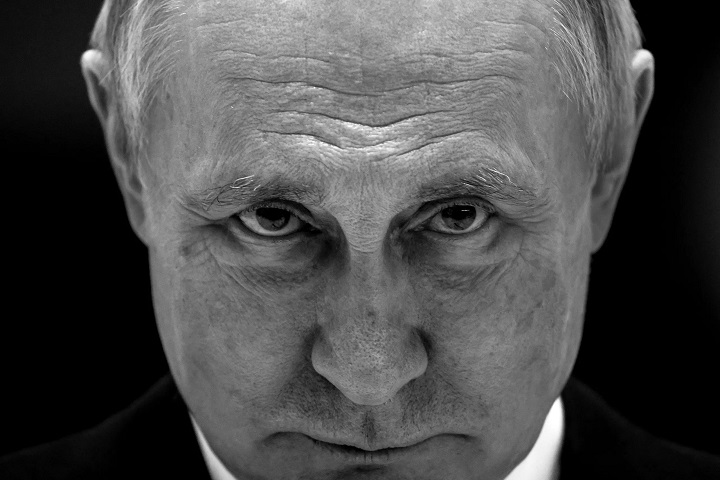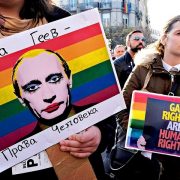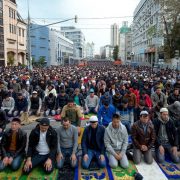
By September, it was clear that while the much-expected Ukrainian offensive didn’t create a breakthrough, neither did the ensuing Russian counteroffensive. Neither side has a decisive advantage over the other.
Lawrence Freedman argued[1] convincingly that we must think about the definition of victory for Ukraine, as Kyiv is not set on marching on Moscow. The entrenched Russian positions in the eastern part of the country are tough to conquer in the present conditions.
“It is always possible that failure in Ukraine could lead to upheavals in Russia. At one point, this seemed to be happening with the Wagner mutiny. But the future of [Russian President Vladimir] Putin’s regime depends on events within Moscow and Russia more widely. The Ukrainian army is not going to march to Moscow and impose surrender terms on the Kremlin. A Ukrainian victory has therefore always depended on Russia deciding that it was not worthwhile continuing with the war and seeking a peaceful way out.
This is why all proposed peace deals require Kyiv conceding territory and Russia somehow promising to leave the rump Ukraine alone in the future. Those designing these putative deals never envisage Russian territory being offered to Ukraine as a quid pro quo. They also fail to ask why and how a ‘peace’ that leaves both sides dissatisfied is likely to be stable and not just be an interlude before the next round of fighting.
If this analysis is correct then the conclusion is frustrating. It is very difficult for Ukraine to achieve a definitive victory. Ending the war depends on a Russian decision to extract itself from a futile and calamitous war. This requires Putin not only acknowledging an expensive failure, but also abandoning his war aims. He has given no indication of being prepared to do either.”
Still, perhaps there is a twist.
Putin has lost the war anyway. He lost its political goals: take control of Ukraine, divide the EU, and expel the US from European politics. In present circumstances, whenever there will be a ceasefire, he will be done for. Russian history is merciless to losers. In 1905, the Czar had to concede a constitution after the beating by Japan; in 1917, the communists toppled the empire after his reverse with Germany; in 1989, the USSR fell apart after the rout in Afghanistan. There is no reason to think that Putin’s fate would be any different now.
A student of history, Putin is undoubtedly well aware of it.
His only way out could be to clinch a deal with the US. There have been many reports of talks between William Burns, director of the CIA and an old Russia hand, and Moscow since March of this year. In fact, at the time of Wagner chief Yevgeny Prigozhin’s mutiny in June, the Americans didn’t support the rebels, possibly as proof of good faith in their discussions with Putin.
However, an agreement on the terms of the deal could be complex, as Americans and Russians may look at things very differently, with diverse expectations and competing assessments of the situation.
War everywhere
Alternatively, Putin might hope that war spreads elsewhere. If it spreads like wildfire in the Middle East and other places, for example, the Russian scrapes could be forgotten at home.
He could then repaint his defeat as a successful resistance against a global Western offensive. He withstood it by holding Russian borders. He is already trying to do that, but if the war begins and ends in Ukraine, it could be a hard sell at home after a ceasefire. In some ways, a similar situation occurred with Stalin during World War II. He mistook Hitler’s intentions in 1939 and almost lost his country and his seat until December 1941, when the US sided with Moscow, supplied it with equipment, and cast the war in an entirely different light.
History won’t repeat itself, and even with peace after a broader war, short of a total American defeat (highly unlikely at the moment), Putin might risk his head. But perhaps he’d have a chance.
So far, the conflict in Gaza has given him time and opportunity.
The Hamas terrorist attack failed to kindle a regional war where other Muslim countries would attack Israel on all fronts, but it is still a diversion.
A new Middle East feature is emerging. In the past 50 years, Arab countries have experienced being blackmailed and having their politics hijacked by the PLO, Al Qaida, and ISIS. Now they apparently don’t want to repeat the experience with Hamas. They may have a stake in the end of Hamas as significant as that of Israel. They want to be free to pursue their goals, without the shroud of radical extremism. This is especially important now as oil revenues are thinning and new growth venues are being sought.
Europe, which in the 1960s and 1970s was understanding of the troubles of Palestinians, now after the wave of terrorist attacks from Al Qaida and ISIS, is more supportive of the crackdown on Hamas. This makes it hard to broaden the war.
Yet, unlike in the 1970s, now there are many Arabs and Muslims in Europe and America, and some of them put pressure against Western (open) and Arab (tacit) support of Israel.
Russia’s chance in Gaza and China’s angle
This situation adds a new level of complexity to the war and provides further space for Russian hybrid warfare. In these conditions, the role of the Pope is crucial, offering a voice and ears to Muslim people dissatisfied with their own countries of origin and their host countries, and left only with desperation or the embrace of terrorists. The Pope, speaking and listening to them, is an objective deterrent to their radicalization.
Therefore, even if war doesn’t light up half of the world, since at the present pace the Gaza conflict will last a few months, Putin will have time to win Russia’s March elections without much rigging.
After the end of fighting in Gaza, things may get murky. A new war could flare up somewhere else, or Russian troops could pierce Ukrainian defenses, deprived of Western total concentration on help and support. Or Russians and Americans could reach a deal to guarantee Putin’s survival.
Still, March could be a reasonable horizon for survival, especially when your days look numbered.
All of this gives China challenges and opportunities. In his November trip to America, China’s President Xi Jinping resurrected the long-defunct theory of China’s peaceful development and floated the idea that the US might want to join the BRI (Belt and Road Initiative), a clear step back from recent anti-American rhetoric.
In other words, China might not want to be stuck in the same car as Russia, which is plotting and scheming on its own and may try to find its way out of the corner of confrontation with Washington.
The new Chinese efforts will not have escaped Moscow’s attention and will add to its complicated calculus and perhaps its talks with the US.
This creates an unstable global equation that could spin in many directions, but it could hold perhaps until the end of the fighting in Gaza.
[1] https://samf.substack.com/p/why-not-losing-is-not-tantamount






Buongiorno, lei, altri danno per scontato che l’Ucraina non abbia ora né abbia in futuro l’intenzione di arivare a Mosca e dettare lei le condizioni di una resa, ma è veramente cosi? con un esercito russo sparpagliato su un possibile fronte di migliaia di chilometri non potrebbe l’esercito ucraino sfondare in un unico punto e arrivare molto rapidamente a Mosca come ha fatto l’armata Wagner, costringendo l’esercito russo di occupazione a correre nel punto dell’eventuale sfondamento? Lei dice, voi dite, Putin in questo caso potrebbe ricorrere all’arma nucleare ma è veramente questa un’alternativa reale? a tutte le ragioni che tutti adducono perché Putin non arrivi a tanto io ne addurrei altre due di non poco conto: la prima è che, spostandosi il teatro di guerra in territorio russo quale risultato tattico o strategico otterrebbe a meno di non butttare la bomba sulla Russia stessa?. la seconda ragione è questa:dal 1989 ad oggi sono passati trentaquattro anni. Può Putin (e chiunque altro) essere certo che nel frattempo in segreto una grande potenza come lo è gli Stati Uniti non abbia escogitato un modo di neutralizzare un attacco nucleare ancor prima che questi abbia un qualsiasi effetto. Non dimenticherei che dal momento della disintegrazione dell’Unione Sovietica ha fatto ulteriori passi enormi, di cui la parte più importante con ogni probabilità è coperta da segreto.